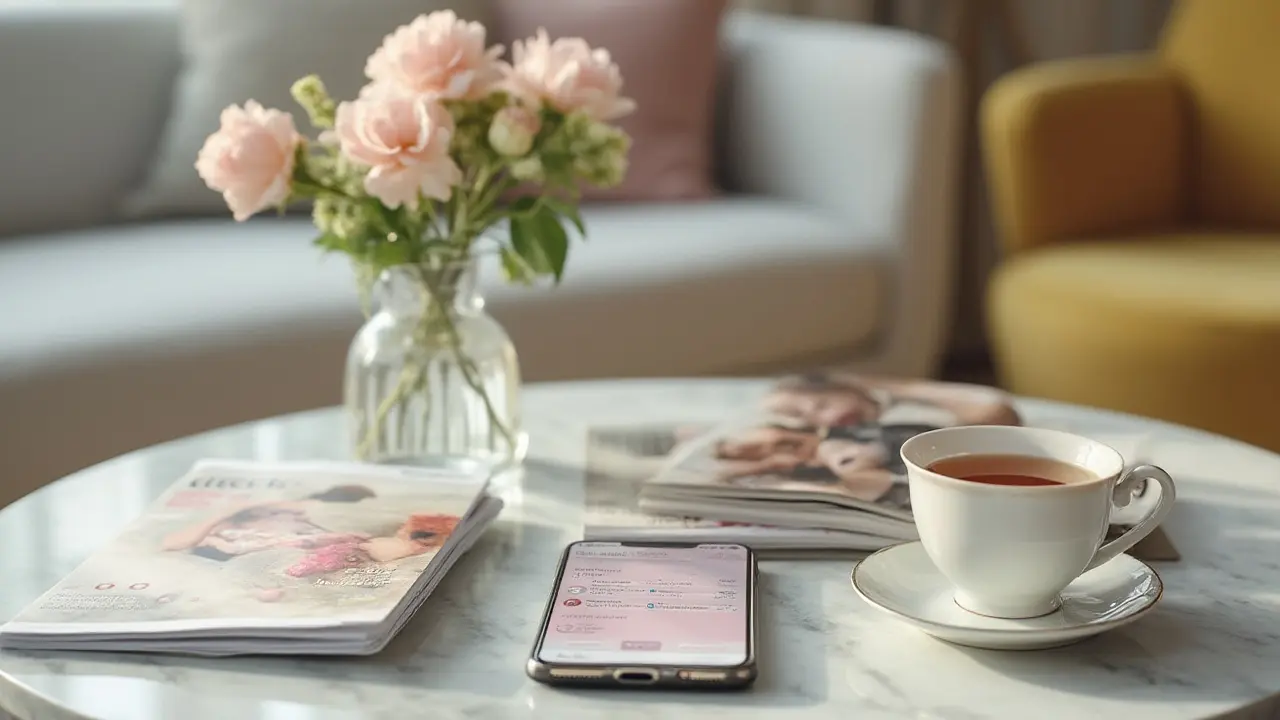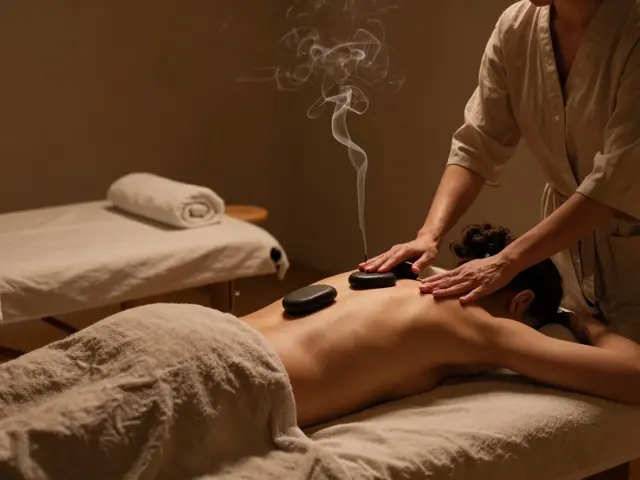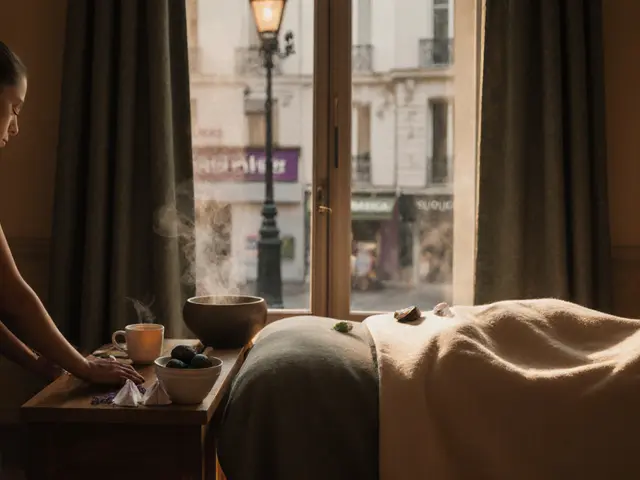Book a Paris Home Massage Fast: Easy Steps & Top Tips for 2025

Think about it: You're standing in the heart of a city famous for its baguettes, art, and endless hustle. But Paris is not all rush—sometimes you just need to escape the noise and treat yourself. Having someone show up at your own door, skilled hands ready, feels nothing short of rebellion in a city that never truly sleeps. No taxis, no awkward waiting room chats, just you and the promise of relaxation right where you live, work, or Airbnb. What’s wild is how ridiculously easy it’s become to set this up on your phone in 2025. We'll break down every step, every cost, every odd little local rule you’d never anticipate. Here’s what actually works, straight from a dad who’s tried more than a few last-minute late-night Paris massages to save his sanity after preschool pick-up disaster number seventy.
Why Parisians Swear by At-Home Massage Services
Paris has always been on the cutting edge of luxury—so it tracks that the French capital would make home massage a true art. After all, the tradition of massage in France goes way back, with spa culture dating to the 1800s and popularized in medical circles as both indulgence and therapy. Fast-forward to 2025, and over 120,000 Parisian residents book at least one mobile massage annually. That’s not counting all the tourists who wise up after a red-eye flight or sore feet from 25,000 steps down endless cobblestone.
The big draw? Efficiency. There’s no queue, no small talk with reception, no struggle to find a last-minute sitter. Having done this myself between Zoom calls and bedtime stories with Ronan, let me tell you: nothing compares to lying on your own sheets while someone else melts away your knots. Privacy plays a big role too. Plenty of folks aren’t comfortable undressing or relaxing in a public spa, especially if you’re fresh off a plane or adjusting to a new timezone.
Another big reason locals are in love with this? Choice. The Paris at-home massage market is booming with styles. Whether you’re after classic Swedish or prefer deep tissue, Shiatsu, hot stone, or even foot reflexology, someone’s offering it. According to a 2024 report by the Parisian Health Board, more than 200 certified freelance practitioners now serve the home, hotel, and office market. Most are bilingual, and plenty hold advanced therapeutic licenses, so you’re hardly sacrificing quality for convenience.
One perk you might not expect: You control the vibe. Light your own candle (or leave it dark), pick your playlist, and choose if you want total silence or to chat. There’s no awkward tip jar, either—nearly all scheduling apps handle gratuities upfront. That predictability helps. Especially when you’re on vacation and want to avoid any "tourist trap" scams.
The Easiest Ways to Book Your Home Massage in Paris
There’s a reason the phrase book home massage Paris pops up in travel forums and WhatsApp chats these days—it's genuinely a game changer. The easiest solution? Go digital. Most Parisians turn to specialized mobile apps or web platforms. Think of these like Deliveroo or Uber Eats, but with massage tables instead of takeout. The top-rated apps—like Urban, Massage Me, and Wecasa—let you browse everything from therapist bios and reviews to treatment menus and prices, all in English or French. Urban, for example, reported over 230,000 bookings across Paris neighborhoods in 2024 alone.
Booking takes maybe 3 minutes. You pick your address, time slot, gender preference for your therapist, and style of massage. The app confirms availability instantly—no back-and-forth emails. You’ll usually see a profile for your therapist, complete with certifications, years of experience, and specific skills (like pregnancy massage or sports injury recovery). Most platforms also include real-time tracking, so you know your therapist’s ETA down to the minute.
If you don’t want to download an extra app, you can also book through company websites using your phone browser. Some even allow booking through WhatsApp or direct DM on Instagram, especially if you’re reaching out to an independent practitioner. Digital payment is king—nobody wants to mess with cash. You’ll get reminders by SMS and email, plus a secure payment system that handles deposits and tips. Many apps accept Apple Pay, Google Pay, all major credit cards, or PayPal.
Booking tips: Time slots zap fast, especially on rainy Sundays or after big public events like Bastille Day. If you’re in Paris during a major conference or festival, aim to book at least a day in advance for your preferred time. That said, tons of therapists offer last-minute bookings—sometimes with short slots as quick as 30 minutes, if you’re just desperate to rescue your back after hauling kids and groceries across Montmartre.
If you want more than a standard menu, many platforms let you customize. Add-ons like aromatherapy, hot stones, or a focus on problem areas are available for a few extra euros. If you don’t speak French, don’t stress—most booking sites let you toggle language with a single click. And in my experience, therapists are used to hearing requests in English, Spanish, and Italian, especially in central Paris.

What You Need to Prepare Before Your Paris Massage
Makes sense to think all you have to do is open the door, but there are a few practical things that’ll level up your session. Start with space. Make sure there’s an open area about 2 by 2 meters (think: enough for a massage table with room for the therapist to move around both sides). Living in a classic Haussmannian flat with ancient parquet? Lay down a towel to protect the floor. If you’re staying in a cramped studio or hotel room, clear off a corner—therapists are pros at fitting tight spaces, but a little prep helps. I once had a therapist set up in the hallway next to a row of kids’ sneakers—he didn’t even flinch.
Temperature is important. Most clients want it warm—anywhere from 22°C to 25°C—so tell your therapist in advance if you like it cooler or want extra blankets. If you have allergies, let the service know ahead of time: Many therapists are happy to use hypoallergenic oils or bring fragrance-free lotions.
Timing is everything. Try not to eat a heavy meal right before the massage, and if you’re planning on enjoying wine or cocktails after (hey, you’re in Paris), schedule the session before happy hour. Some treatments, like deep tissue or sports massage, can leave you a little loopy—plan to chill for an hour after, or at least don’t try to run out and climb the stairs at Sacré-Cœur immediately afterward.
If you have special mobility needs, most platforms ask for those details at booking. This is super common for postnatal, injury recovery, or elderly clients—therapists often bring extra bolsters or supports on request. If you’re booking for a group—say, a family, bachelorette party, or work retreat—ask about package rates or staggered session slots.
Here’s an often-missed tip: Some Paris apartments have impossible buzzer systems or odd lock codes. Send clear access instructions to the therapist in advance to save you from a classic “lost in the stairwell” scenario. If you’re in a hotel, tell the front desk you’re expecting a massage therapist so they won’t send your therapist away at the door. Trust me, I learned the hard way after one masseur got shooed onto the street by a fussy concierge.
Prices, Payment, and What to Expect: No Surprises
Money talk, because Paris isn’t cheap. But compared to spa prices in fancy Paris hotels, home visits often save you cash. As of July 2025, the average cost for a 60-minute home massage runs €70 to €120, depending on style, therapist experience, and whether you toss in extras like cupping or essential oils. Want a couples’ massage or extra time? You’ll usually get a discount for back-to-back sessions in one visit.
Nearly all digital booking apps show you a flat price up front—no mysterious service charges at the end. Payment happens directly in-app or online, and you’ll get a digital receipt. Tipping is included or optional, but plenty of French therapists happily accept small cash tips if you feel your service was exceptional. For reference, the Parisian Massage Association survey in late 2024 found that 76% of clients tipped between 8-12%, but no one will shame you either way.
| Massage Style | Duration (minutes) | Median Price (€) | Popularity (%) |
|---|---|---|---|
| Swedish Classic | 60 | 85 | 38 |
| Deep Tissue | 60 | 95 | 23 |
| Aromatherapy | 60 | 90 | 16 |
| Prenatal | 60 | 105 | 9 |
| Foot Reflexology | 45 | 65 | 14 |
Session time is sacred. Most therapists show up right on the dot—don’t be surprised if they text you a few minutes before arrival. They’ll usually bring all their gear: table, fresh linens, oils, wipes, and sometimes even a playlist and small pillow for extra comfort. Sessions start with a quick consultation—tiny quiz about any injuries, what hurts, and what works for you. Expect 10 minutes for setup and takedown on top of your paid massage time.
What about privacy and hygiene? French national health regulations, updated in 2023, set strict rules for freelance therapists. Every massage table must be disinfected between clients, sheets and towels are single-use or fully laundered, and therapists must show proof of clean certification if you ask. I appreciate this kind of transparency—especially after the last few years of everyone being extra vigilant about wellness risks.
You don’t have to talk unless you want to. It’s your session, so speak up if a pressure point’s too much, or if you have a favorite playlist. Many therapists ask for feedback mid-session, and nearly all finish by offering a glass of water and a minute to re-center before they pack up. Don’t feel awkward lounging around in your robe when they leave. Parisians do it all the time.

Hidden Perks, Unusual Requests, and Local Tips from a Veteran Client
First timer or seasoned home-massage fan, there’s always a surprise or something fresh to try. Some therapists cater to really specific needs—like post-marathon recovery (hello, Paris Marathon runners), pre-wedding nerves, or new dads with wild shoulder tension (guilty). If you want something quirky, ask! I’ve seen everything from candle massage (yes, liquid wax, nothing R-rated) to guided stretches paired with the massage.
French law allows at-home massages for all adults, but parental consent is needed for anyone under 18. If you want a session for your teen after a long travel day, make sure to note it in the booking. And if you're pregnant, Paris therapists are well-versed in prenatal massage—just double-check credentials as the city requires special training for prenatal clients since 2023.
Cultural tip: Don’t stress if your therapist doesn’t chat much during the session—many follow a "no small talk unless the client starts it" rule. On the flip side, lots are happy to recommend stretches or local wellness spots if you ask at the end.
Want to go all-in? Book a tandem massage (two therapists, one after the other) or try blind selection—letting the app match you with whoever’s available just to shake things up or snag a deal. For families, some platforms offer "quiet therapy." This means special techniques to keep things low key if you’ve got a baby sleeping next door. Worked for me when Ronan was teething and silence was rare gold.
One last thing you’ll love: Some therapists now use VR-guided relaxation or soundscapes if you’re tech-inclined, sending you links ahead of time or setting up a quick headset demo. Paris never sits still, and neither do its massage pros.
If you get hooked, ask your therapist about loyalty rates or discounted packages—especially if you’re in the city for a few weeks or if you want to book again for visiting friends. Massage isn’t just a luxury here anymore; it’s woven into daily Parisian self-care and, if you ask me, makes city living infinitely more doable.





